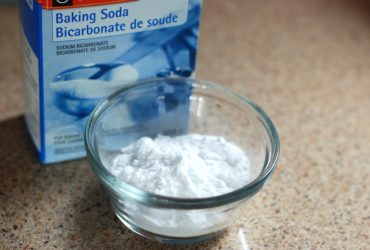By: Clara Salame and Marta Albiol Tapia
The COVID-19 pandemic is now responsible for over 2,900,000 confirmed cases of illness and over 202,000 confirmed deaths worldwide. The CDC states that symptoms may range from mild to severe depending on each case, which makes the identification of certain infected people very challenging. The symptoms frequently reported by COVID-19 patients include fever, cough, shortness of breath, chills, muscle pain, headache and sore throat. Recently, new symptoms were added to this list: loss of taste or smell.
What do we know about this symptom?
Loss of taste and smell is a common symptom that comes with viral infections, as it could damage some sensory receptors and neurons.
An example is the common flu, where people often report a loss of the ability to smell and taste food. Reports of a loss of taste and smell in COVID-19 patients have been spreading through the media in various ways, from blog posts written by patients who self-report their experience with the virus, to newspaper articles, and even journal articles that strongly correlate chemosensory dysfunction with COVID-19 infection.
A research letter published on April 22nd in the Journal of the American Medical Association states that “of 130 patients reporting an altered sense of smell or taste, 45 (34.6%) also reported blocked nose.” This indicates that in COVID-19 patients, a blocked nose may not be the only reason for alterations in these senses.
Even though the focus of COVID-19 are respiratory symptoms, the nervous system can also be affected, with implications in the senses of taste and smell.

Photo by Alexander Daoud from Pexels
What do we know about smell and how it affects taste?
In order to perceive a smell, a volatile compound released from a substance must stimulate special nerve cells (known as olfactory cells) in the nose. This also happens when we chew, where the molecules responsible for the aroma of food travel to the olfactory receptors through the back of the mouth. These nerve cells then send information to the brain, where the specific smell is identified. Anything that interferes with this process, from nasal congestion during a cold, allergy, or sinus infection to damage of the nerve cells themselves (for example, by head trauma), can lead to loss of the sense of smell.
It is important to note that a lack of the smell sensation (anosmia) does not necessarily mean loss of taste (hypogeusia). Although the terms taste, smell and flavor are often used interchangeably, flavor is the combination of the senses of taste and smell. The loss of one of those sensations could affect the other one but does not exclude it (one can still taste while being anosmic).
When people report losing their sense of taste (for example, people who have a common cold reporting that their food tastes bland), it is usually a consequence of an impairment of their sense of smell. However, in COVID-19 patients, there is still research being done on whether this is the case or not.
Some asymptomatic patients who tested positive for the coronavirus still report anosmia, as reported by the American Academy of Otolaryngology – Head and Neck Surgery, which recommended adding the loss of smell as a screening tool for suspected COVID-19 infection. A group of experts in smell and taste from around the world formed “The Global Consortium of Chemosensory Research (GCCR)” to further explore the relationship between the loss of those senses with COVID-19.

Photo by Polina Tankilevitch from Pexels
What could be the cause of the loss of the sense of smell?
There are several theories that may explain this symptom. One of the leading theories is that “the virus is attacking nasal tissues […], causing inflammation or other disease processes that interfere with normal smelling function.” Steven Munger, director of the University of Florida Center for Smell and Taste, has also stated that “a short study analyzed gene expression data in nasal tissue and found two genes that code for this class of viruses, which suggests a more global inflammatory response”.
Luckily, it looks like patients generally recover their sense of olfaction after a few weeks.
What to do if you suddenly lose your sense of taste or smell?
The Centers for Disease Control and Prevention (CDC) now recognize anosmia and hypogeusia as symptoms for COVID. According to Harvard Health Publishing, “Studies are being done to get more definitive answers about how common anosmia is in people with COVID-19, at what point after infection loss of smell occurs, and how to distinguish loss of smell caused by COVID-19 from loss of smell caused by allergies, other viruses, or other causes altogether.”
Keeping that in mind, the main recommendation is to stay at home and separate yourself from any household member to avoid spreading the disease. Avoid going out even to public areas. Get rested, stay well hydrated and monitor your symptoms. Try to minimize circulation in the house, sharing materials like kitchen utensils, and wear a mask if any interaction with humans or pets is going to occur. Once the symptoms have passed, wait at least 14 days before interacting with people again or going out to public places. The virus can still be present and spread if the symptoms are gone. For more CDC guidelines and recommendations on what to do if you are sick, click here.
When it comes to food, what can you do to maximize safety?
There is currently no evidence of food or food packaging transmitting COVID-19.
However, here are some FDA tips to stay safe:
- Purchase enough food for 1-2 weeks at a time.
- Avoid close contact with other people at grocery stores.
- Wash your hands often, especially before preparing and eating meals.
- Rely on credible sources of information.


Marta and Clara are Ph.D. students at the University of Illinois in Urbana-Champaign. Marta’s research in the Department of Food Science and Human Nutrition focuses on sensory methodology in consumer testing. Clara’s research in the Division of Nutritional Sciences focuses on sweet taste receptors and glucose metabolism.






Leave a Reply